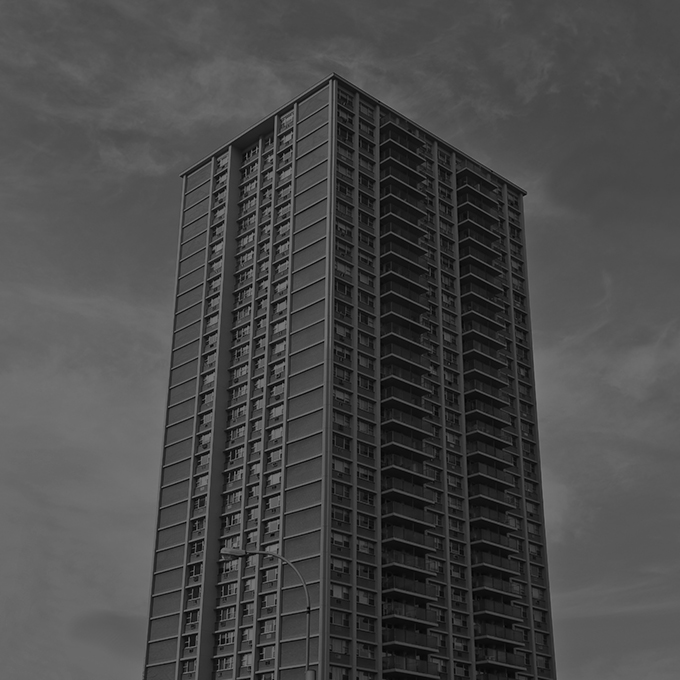MORE RENTERS ARE STAYING PUT...
GLOBE AND MAIL - Dayen Patterson
Canadian renters are waiting for housing prices to drop before jumping into the market, according to a new report, reflecting optimism over a trend of falling prices.
As renters inked new leases this year, 28 per cent said they considered buying property rather than renting, the 2025 Canadian Renters Report says. This is nearly the same as last year, when 29 per cent of respondents said they considered buying a home.
The major difference, according to the report, released by Royal LePage on Thursday, is that about 40 per cent of renters across Canada reported they are choosing to wait for property prices to fall further, compared with 30 per cent in 2024.
As renters inked new leases this year, 28 per cent said they considered buying property rather than renting, the 2025 Canadian Renters Report says. This is nearly the same as last year, when 29 per cent of respondents said they considered buying a home. ""
The survey, conducted by Burson on Royal LePage’s behalf, heard from 1,854 adult Canadian renters between June 2 and 9 using the Leger Opinion online panel survey. Phil Soper, president and chief executive of Royal LePage, believes that trend is being driven by optimism over house prices, which have dropped since peaking in 2022. “It’s really rare to see home prices in our biggest cities stay as flat as they have, or even give up some value for as long as they have,” Mr. Soper said.
For those looking to buy, Mr. Soper said he would not bet on prices improving further. The Canadian Real Estate Association Housing Price Index showed national housing prices had dropped by 3.5 per cent in May compared with the year prior.
Renters in Saskatchewan and Manitoba are the most hesitant to shift from the rental market to home ownership, with 48 per cent reporting they are choosing to wait for market prices to drop. While 44 per cent of renters from the two provinces said they were considering buying property in 2024, that ratio has since dropped to 28 per cent.
“There’s definitely uncertainty, I think in the economy, tariff implications,” said Anthony Bertrand, a realtor in Winnipeg with Royal LePage.
Mr. Bertrand and Mr. Soper said that national concern about housing costs can also lead potential buyers to put away their pocketbooks, regardless of region.
And while the cost of living is generally lower in the Prairies, the region’s major markets have seen an increase in home prices year-over-year.Saskatchewan home prices were up 8.6 per cent in May from the previous year, according to the CREA’s Home-Price Index, tied for second with Newfoundland and Labrador. Quebec topped the list at 9.8 per cent.
The real estate association did not have publicly available Home-Price Index data for Manitoba as a whole, but it reports that Winnipeg housing prices have risen 8.2 per cent over the same time period.
The survey also asked renters to consider whether they could afford to own a home.
In last year’s Canadian Renters Report, 41 per cent of Canadian renters who responded to the survey said they did not have a sufficient down payment for a home, and 20 per cent said they could not qualify for a mortgage or financing.
Those questions were combined in this year’s survey, with 26 per cent of renters saying they could not afford a down payment or financing. People in the rental market are, for the most part, looking to buy property in the future, typically in the next two to five years.
For those who are not, the main reason is affordability. More than half of renters who said they were not buying homes stated that their desired neighbourhood was unaffordable. About 40 per cent of respondents said renting is more affordable, while the same percentage said they don’t want the responsibilities of maintaining a property.
APARTMENT RENTS STILL SOFT
RENTALS.CA
Asking rents in Canada averaged $2,129 in May, decreasing 3.3% compared to a year ago when rents reached a record high of $2,202. Rents have declined year-over-year for eight consecutive months. However, rents remained 5.7% higher than two years earlier and 12.6% higher than three years earlier.
Average asking rents in Canada have increased by an average of 4.1% annually over the past five years, exceeding wage growth, averaging approximately 3% over the same period. This indicates that rental affordability has worsened overall since COVID-19, despite recent softening in rents.
The 12-month moving average rent recorded a mild annual decline of 0.8%, the first annual decrease for 12-month average rents since January 2022. More recent trends indicate that rents have been moving higher this spring, rising 2.0% over the past three months. It is typical for rents to experience seasonal growth during the spring and summer months as more renters enter the market.
Rents for Secondary Market House Rentals Drop 7%
Asking rents held steady in May month-over-month, edging up 0.1% from April due to increases in secondary market rents. Condo rents increased 0.8% monthly, while rental units in houses and town homes increased 0.3% from April to May. Rents for purpose-built rental apartments have been the most resilient during the past year, recording a 2.0% annual decrease compared to annual rent declines of 7.0% for houses and town homes and 3.6% for condo apartments.
Three-Bedroom Purpose-built Rents Continue to Rise
Three-bedroom purpose-built rental apartments were the only market segment to experience growth over the past year, with rents rising 3.9% annually to an average of $2,743. Three-bedroom rents also held up best for condo apartments, declining only 0.8% annually. Studios had the largest rent decline for condo apartments, with a 5.1% annual decrease to an average of $1,762. For purpose-built rentals, rents decreased the most over the past year for two-bedroom units (-3.9% to $2,288).
APARTMENT STARTS DOWN
Costar - Kristian Gravenor
New multifamily builds slowed significantly in Ontario and British Columbia from January through May 2025, while rising at a brisk pace in Quebec and Alberta.
The varied results around the country played out against the backdrop of a national market that's getting a boost in demand from an increased population, government policy encouraging a growing housing supply and added desire among residents to rent. Factors contributing to the various demands in each market can include population density and government policies.
For example, multifamily residential construction starts rose 55% in Quebec, as the province recovers from four years of slow residential construction between 2020 and 2024 that saw only half of the number of units completed per year compared to the five years prior.
Meanwhile, multifamily housing starts in Ontario dropped 30% and by 22% in British Columbia during the five months, as compared to one year earlier.
The new data also indicates that condo sales dropped 75% in the Toronto region since 2022 and by 37% in metropolitan Vancouver, as reported by CoStar News.
The total multifamily construction starts rose by 31% in Alberta, according to housing start totals released by Canada Mortgage and Housing Corporation.
The Toronto area saw a decline of 46% in new multifamily starts in the first five months of 2025, while Vancouver witnessed a drop of 24%. In contrast, Montreal — with its slow residential construction in the past four years — saw its totals rise by 58%, while Calgary gained 43% and Edmonton increased 13% during that time.
Fredericton, Sudbury, Kingston and Saskatoon all saw healthy increases in multifamily construction starts for the January through May compared to one year earlier, rising by between 208% and 230% for the five months.
Ontario cities led the declines in multifamily builds during that time, with Guelph, Peterborough and London shrinking by 81%, while Oshawa and Windsor dropping by 77%.
In British Columbia, Nanaimo multifamily construction starts declined by 78% in Nanaimo and Kelowna by 47%
Overall Canada’s housing starts in both categories of single-family and multifamily budged little from the month prior, as the total new construction starts declined by 0.2% in May compared to April.
The May numbers represent a 9% improvement over the same month in 2024 in total new construction starts in population centres of 10,000 or more.
The year-to-date total through May of 2025 has seen 29,767 housing starts is a mere 1% improvement over 2024.
THE APARTMENT GROUP
Together the team has completed over 1,500 transactions and has sold over $8.0 billion in apartments and development land. Put us to work for you and see the results. NO ONE has sold more buildings than our group. Experience, knowledge and professionalism will insure you get the right deal or the highest price if you are selling.
The Apartment Group is a dedicated team of professionals specializing in the sale of multi-residential investment properties. With over 40 years of combined experience, the team brings together their strengths including strong negotiation and sales skills along with highly technical market analysis and appraisal methods.
We are a boutique Brokerage but have the capabilities of the larger houses without the overhead. We have: an internal database of over 10,500 active apartment and land Buyers; a list of all apartment building owners in the Greater Toronto Area; our web site gets over 50,000 hits a month; we highlight properties for sale through our newsletter which reaches 10,000 investors monthly.
MITCHELL CHANG
President & Owner,
Salesperson
Direct: 416-219-0436
mchang@cfrealty.ca
LORENZO DIGIANFELICE, AACI
Broker of Record, Owner
Direct 416-417-9098
ldigianfelice@cfrealty.ca
JAKE RINGWALD
Salesperson
Direct 416-996-7713
jringwald@cfrealty.ca


